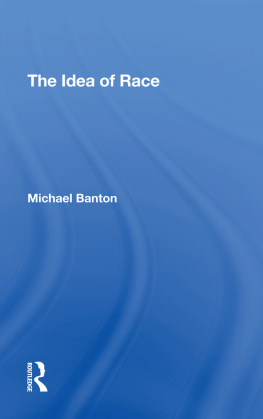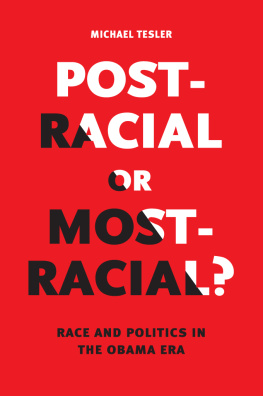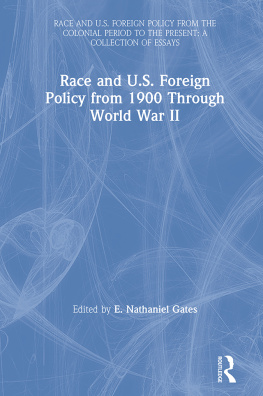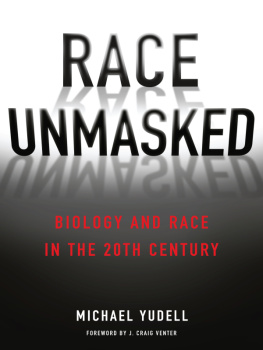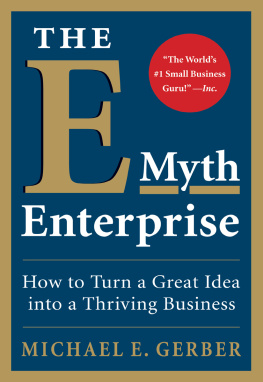First published 1977 by Westview Press
Published 2019 by Routledge
52 Vanderbilt Avenue, New York, NY 10017
2 Park Square, Milton Park, Abingdon, Oxon OX14 4RN
Routledge is an imprint of the Taylor & Francis Group, an informa business
Copyright Michael Banton 1977
All rights reserved. No part of this book may be reprinted or reproduced or utilised in any form or by any electronic, mechanical, or other means, now known or hereafter invented, including photocopying and recording, or in any information storage or retrieval system, without permission in writing from the publishers.
Notice:
Product or corporate names may be trademarks or registered trademarks, and are used only for identification and explanation without intent to infringe.
Library of Congress Cataloging in Publication Data
Banton, Michael P
The idea of race.
Bibliography: p.
Includes indexes.
1. Race relations--History. I. Title.
HT1507.B36 1978 301.451042 77-91337
ISBN 13: 978-0-367-29295-9 (hbk)
1
The intellectual inheritance
On the fourteenth of August 1862, Abraham Lincoln summoned to the White House a group of black Americans to explain to them his despair about the future of black people in the United States and his interest in schemes for sending them back to Africa. He began:
ou and we are different races. We have between us a broader differenee than exists between any other two races. Whether it is right or wrong I need not discuss, but this physical difference is a great disadvantage to us both, as I think your race suffer very greatly, many of them by living among us, while ours suffer from your presence
Congress had appropriated funds to colonize blacks outside the country. Lincoln emphasized that on this broad continent not a single man of your race is made the equal of a single man of ours. In his judgement they were suffering the greatest wrong inflicted on any people. The President did not spell out his explanation of why they were treated in this manner. Apparently he thought that for some unspecified reason white Americans were incapable of behaving with justice towards blacks. Criticizing the colonizationists, a contemporary had asked if it was conceivable that Christ had commanded men to love one another without giving them the power to do it. Lincoln did not refer to this objection. He seems to have regarded racial prejudice as in part a moral issue, but not entirely. What he called this physical difference apparently marked a boundary within which communal sentiments operated (Sinkler, 1971: 3753).
Lincolns remarks reflect the belief that there is something about relations between people of different race that distinguishes them from relations between people of the same race. That belief was nurtured by the theory of racial types formulated in the middle years of the century, and it lingered on to give plausibility to the view that race relations constituted a special field of study. Today it would be generally agreed that the subordinate position of blacks in the United States in 1862 did not spring from differences in the biological nature of blacks and whites but from political, economic, and social causes. According to this interpretation race relations are relations between members of social categories that happen to be identified by racial labels.
This book explores the intellectual context within which the old conception of race relations arose, and goes on to discuss the main lessons to be learned from changes in the way of looking at these matters. It deals with the study of race relations as a general body of knowledge which tries to bring together in a common framework studies of group relations in different countries and in different periods of history. If such a framework exists, it is at present far from adequate. Indeed it is worth considering whether the attempt to improve it shows any promise since many scholars would consider this a misconceived enterprise. They maintain that race has meant different things in different circumstances and the categories to which the label has been applied in particular circumstances have been so varied that the scholar can do no more than write the history of particular societies and particular conflicts. For example, at the beginning of this century a reference to race relations in South Africa was usually a reference to relations between Afrikaans-speaking whites and English-speaking whites, whereas today it would surely refer to relations between blacks and whites. When a group starts to regard its relations with another group as, racial this may well betoken a change in the nature of those relations, and may merit attention on that account. Equally, an understanding of Lincolns beliefs about the nature of race may help the historian interpret the Presidents actions, but no one today who asks what American race relations were like in 1862 would be justified in starting from Lincolns assumptions about the nature of race. The student of race relations must not limit himself to the participants conceptions of what was racial, even though his material has always to be considered in its historical context.
To ask what we have learned about race relations is therefore t pose a complex question. It entails, first, the study of the growth of knowledge; second, it examines knowledge about a changing subject matter which appears to be transformed as peoples conceptions of race have changed; third, it requires study of the work of scholars who did not stand apart from their subject matter but shared understandings about the nature of race with the people whom they were studying. For this last reason at least it is unwise to separate the sociology of race relations sharply from the history of the idea of race. Sociological theory is built with ideas, and these ideas have their histories, so that the relationship between the theory and the histories is something the sociologist must keep under examination.
As people can understand their history only through the concepts of their own time, it is continually necessary to rewrite history in the light of new concerns and understandings. Equally, people interpret their own time in the light of their beliefs about the past, and if they misunderstand their past they cannot properly understand their present. In human affairs there is a continual inter-relation between the present and the past which is reflected in all the social sciences and has a special relevance to a field like race relations which has to build on uncertain foundations.
It is also unwise to study the idea of race in isolation from two other ideas that were likewise reborn in the early years of the nineteenth century. The modern ideas of race, of class, and of nation, arose from the same European milieu and share many points of similarity. All three were exported to the furthest parts of the globe and have flourished in many foreign soils. In so far as men have believed that it was right to align themselves on the basis of race, class, and nation, or have believed that these would become the major lines of division, so these ideas have proved their own justification. But events have not borne out the predictions very closely. Nation has been the most successful of the three. The idea promised that every man possessed a nationality as a natural attribute and that he had a right to be ruled only as a member of his nation. This implied that a state must coincide with a nation and that minorities should separate and join up with their fellow nationals. That promise has not been fulfilled. Some states, like the United Kingdom, inelude more than one nation. Almost every state includes one or more minorities (Iceland, Europes oldest nation, is an exception that scarcely upsets the generalization). If one state seeks to expel one of its minorities, as Uganda has recently done, it adds to the minority problems of other states. The idea of class promised an ever-widening patterning of group alliances based upon common relations to the ownership of the means of production. Yet instead of sharper discontinuities, social stratification in most industrial countries today is characterized by a continuous distribution of positions along a scale of status. There are occupational communities that show a sense of collective identity but across the broad social range class consciousness is a feeble force compared with the consciousness of status differentiation. The third idea, that of race, promised at first that each racial type would take command of the territory to which it was naturally suited, but this gave place to the belief that the whites had inherited a superiority that would enable them to establish their rule in all the regions of the world. In neither form has the prediction been fulfilled. The self-confidence of the Anglo-Saxons has been shattered and the appearance of a biological basis for racial theories has disintegrated.

